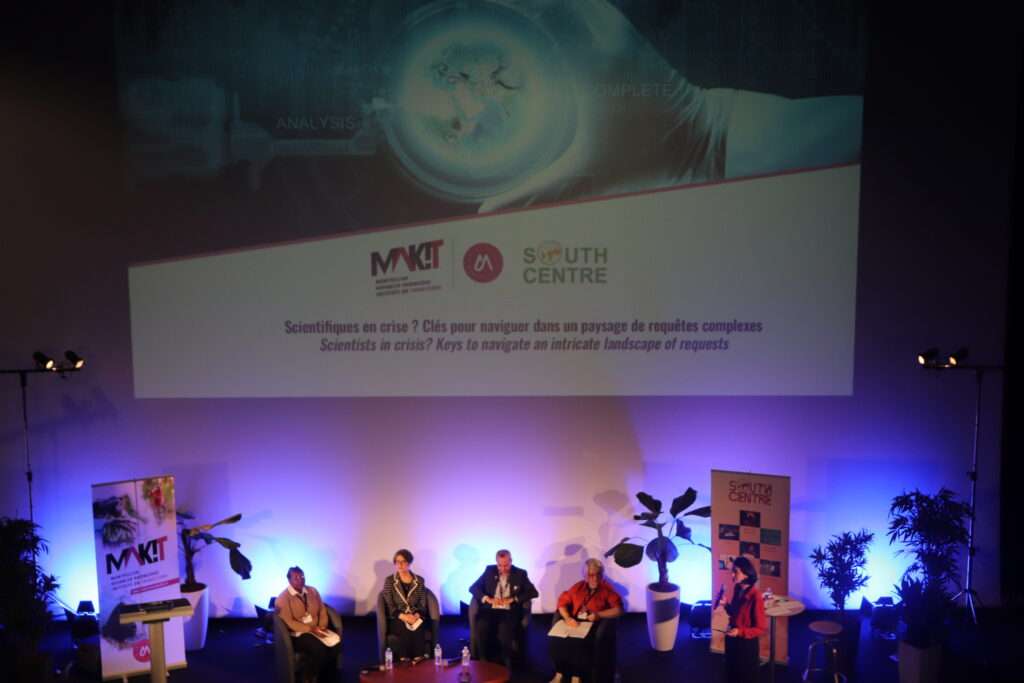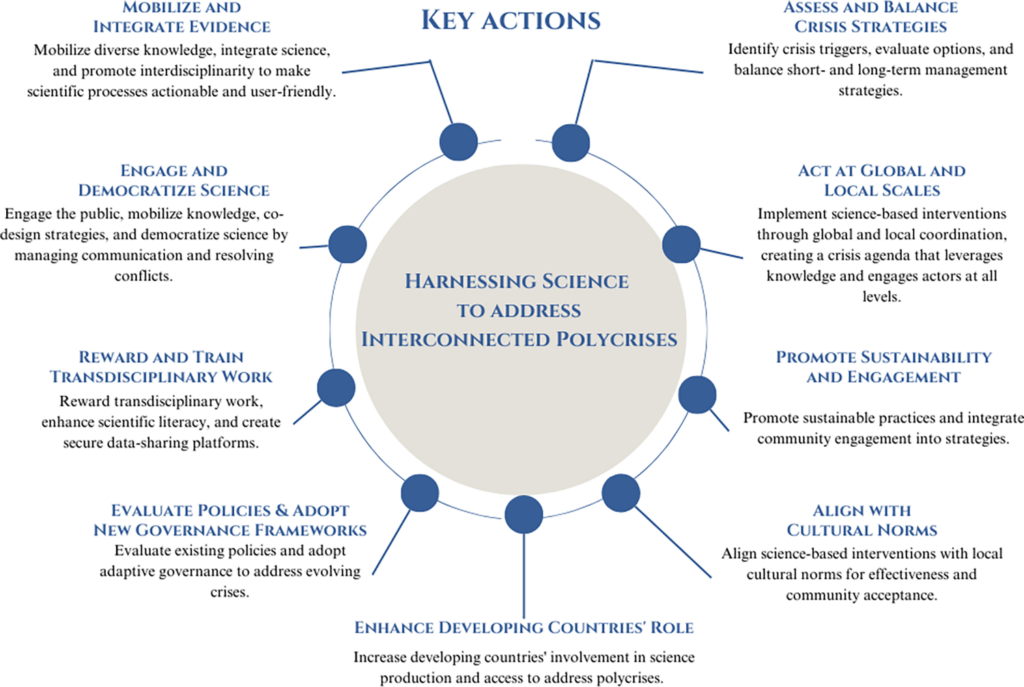New publication in PLOS: ‘The Crucial Role of Science in Sustainability and Transformation’
In an era marked by the convergence of complex crises, the role of science in sustainability and transformative changes has never been more critical. A recent publication in PLOS Sustainability and Transformation, titled “Science in Crisis Times: The Crucial Role of Science in Sustainability and Transformation,” delves into this pressing issue. Authored by a distinguished group of experts, including Paul Shrivastava, Louise Jackson, Gary E. Machlis, and the former MAK’IT Scientific Officer Thaura Ghneim-Herrera, the article draws from the insights of the 2022 MAK’IT conference “What Role for Science in Crisis Times? Outlook in the Health, Environment, and Agriculture Interconnected Areas”, held in Montpellier in 2022 with the support of the South Centre, which brought together 18 international experts.

The publication emphasizes that crises, whether acute or chronic, require a reorganization of scientific practices to support both people and the planet. The authors argue that despite the wealth of scientific knowledge available, its full potential remains untapped due to disciplinary silos, slow response times, and the lack of integration of scientists in crisis situations.
Unlocking science’s full potential to address the world’s urgent crises calls for a united effort and transformative change
The article calls for a more fluid, timely, and integrative approach to incorporating science into the resolution of complex crises. This involves fostering a scientific culture with public engagement in policy, regulatory, and financial actions. Political leaders are urged to engage with science throughout crisis decision-making, mobilizing evidence from diverse knowledge systems to ensure holistic responses.
By encouraging both interdisciplinarity and transdisciplinarity, the scientific community can better contribute to crisis management and sustainable development goals. The insights and recommendations from the MAK’IT conference provide a valuable roadmap for enhancing the contributions of science to global resilience and sustainability. The recent publication in PLOS Sustainability and Transformation highlights the need for a reorganization of scientific practices, ethical responsibilities, and global participation to effectively address these challenges:
